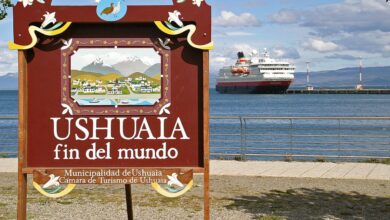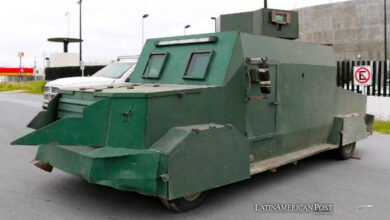Find Out Everything You Need To Know About the Elections In Germany In This Article.

Solve all your doubts about the elections of the main European economy. Photo: Adobe Stock
LatinAmerican Post | María Fernanda Ramirez Ramos
Listen to this article
Leer en español: Todo lo que tiene que saber de las pasadas elecciones en Alemania
With the recent elections in Germany, the Bundestag parliament was elected, which will be made up of 735 deputies, who in turn are responsible for electing the chancellor for a period ranging from 2021 to 2025. However, being a parliamentary regime, In the electoral system of this country, 50% of the votes are required for a party to form a government and elect the chancellor. However, the results of this Monday were worrying, since no party reached this number of votes for its candidate to hold the position of head of government and the victory of the socialists was small and leaves the options open.
Alemania celebra elecciones este domingo.
Repasamos algunas cifras que nos ayudan a entender mejor esta cita electoral. #btw21 #EleccionesAlemania pic.twitter.com/Am1aFgR9DX
— Embajador de Alemania en Madrid (@AlemaniaDiplo) September 25, 2021
This event shows the need for the different political movements to form coalitions that allow them to govern the country. The center-left Social Democratic Party (SPD) obtained a 25.7% turnout with 206 deputies. For its part, the ruling center-right party, the Christian Democratic Union CDU, obtained 24.1% with 196 deputies. On the other hand, the Alianza 90 / Los Verdes party obtained 14.8%, the Liberal Democratic Party 11.3%; the far-right Alternative for Germany (AfD) party 10.3% and the Left party 4.9%. The election of the future chancellor will depend on the alliances that these latter parties make with the Social Democrats or the Christian Democrats.
Despite the fact that Merkel represented a conservative party, her positions and management made her very popular in Germany and Europe, thus managing to unite different sectors. According to information from the Pew Research Center , in 2021 confidence in the chancellor is 76% in the Teutonic nation. Furthermore, in the rest of Europe, seven out of ten people trust the leader. However, these data contrast with the historic defeat of the conservative bloc, made up of the Christian Democratic Union (CDU) and the Christian Social Union (CSU), a party from the Bavarian region, which since 1949 did not obtain such low votes. This represents a great challenge for the leader of the CDU and minister-president of North Rhine-Westphalia, Armin Laschet, who would be Merkel's natural successor, but who has made several mistakes in the campaign. The alternative to Laschet is Olaf Scholz, candidate of the Social Democratic Party SPD, who is the current Vice-Chancellor and Federal Minister of Finance.
We recommend you read: Who will be Merkel's successor?
In this scenario there are several possible coalitions, which have been named based on the combination of the colors of the parties that would make them up:
-
Traffic light coalition: formed by the Social Democrats, the Greens and the Liberals (red, green and yellow). Scholz has called this option the "social, ecological and liberal" option.
-
Jamaica Coalition: formed by the Conservatives, the Greens and the Liberals.
-
Red, Red, Green Coalition: made up of Social Democrats, the Greens and the Left. It would be a government of the left, feared by the conservatives.
-
The grand coalition: it would unite the two majority parties, just as they have been in power for the last eight years, but with Olaf Scholz as head of state and not with a Christian Democrat.
-
Kenya Coalition: There is the possibility of a coalition broader than the “grand coalition” that would include the Greens, a political force that has grown considerably in recent years and has attracted young people from different regions of the country, especially for its ecological approach and its proposals to face the climate crisis more firmly.
-
Germany Coalition: it would be made up of the Christian Democrats, the Social Democrats and the Liberals. Due to economic policies, it would be one of the favorite options of business leaders in the country.
Laschet has affirmed that he will seek a Jamaican coalition, although he does not close the doors to other possibilities. However, it is clear that the Greens party has a greater political affinity with the Social Democrats, so a traffic light-type coalition seems the most likely option. Despite the fact that the Liberals have refused to unite with the Social Democrats in past elections, Scholz has warned the leaders of that party that an eventual union of his party with the Conservatives would be to ignore the preferences of his constituents.
All the major parties have made it clear that within their coalitions, the far-right AfD (Alternative for Germany) will not be there. This party despite having won large votes in the former German Democratic Republic (East Germany, dominated by the Soviet regime), has lost representation in parliament and was excluded to a fifth place. In the face of a grand coalition, the main opposition party would not be the AfD.
Polls have closed in Germany and the first projections are out. The Social Democrats and Christian Democrats are neck and neck.
Which combination of parties will form the next coalition government? #btw21 pic.twitter.com/twkuQcnaTg
— POLITICOEurope (@POLITICOEurope) September 26, 2021
For the time being, Chancellor Angela Merkel will remain in power until coalitions are formed and the new chancellor is elected. If the "grand coalition" does not win, it would be the first time in history that Germany would have a tripartite coalition. Both Scholz and Laschet have to start building their governments, knowing that the other has almost the same options and it will depend on how much they give in to the minority parties, who now have the upper hand. But if no agreement is reached, the elections will have to be repeated, a scenario that everyone seeks to avoid, and both hope to have a new chancellor before Christmas.
The next chancellor will be tasked with leading the continent's most important economy, after one of the greatest crises for humanity. Likewise, it will have to face climate change and migratory crises, as priorities on its agenda.





